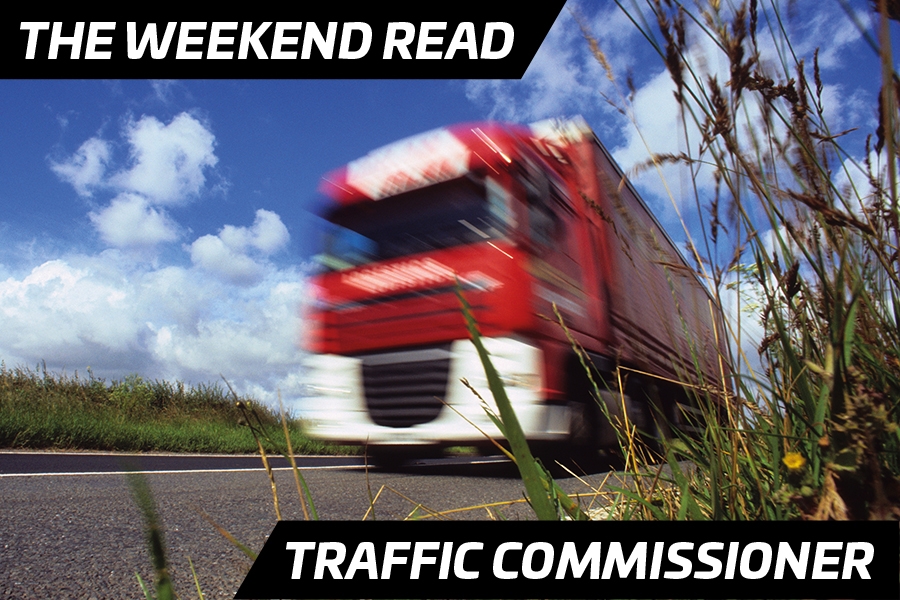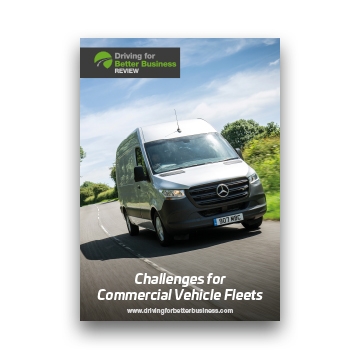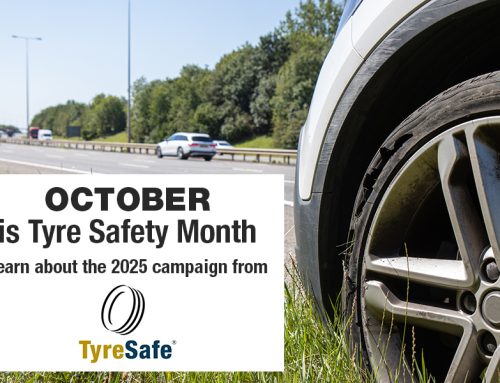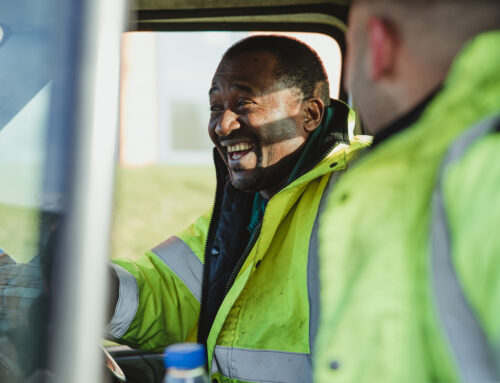Traffic Commissioner Sarah Bell talks to David Williams about why a breakdown in trust between fleet operator and traffic commissioner could severely disrupt your ability to do business.
There’s one key word that crops up repeatedly in Traffic Commissioner Sarah Bell’s lexicon; ‘trust’.
It appears to be the glue in what she clearly regards as a healthy working relationship between Great Britain’s Traffic Commissioners and operator licence holders, transport managers and Britain’s fleet business.
But that doesn’t mean you can pull the wool over her eyes – far from it. With an extensive background in criminal and regulatory law as a former partner in a firm of solicitors, and with many years’ experience as a traffic commissioner, Bell claims – justifiably – to have a ‘nose’ for trouble.
And, for the record, that includes any operator who thinks that – just because their big freight or passenger business is running nice and smoothly – they can cut a corner here and there with the small stuff; their car and van fleet.
Getting this wrong is just one of many shortcomings that can land operators – or managers – in front of Sarah or one of her colleagues, where they will have to demonstrate why they are fit to retain their licence.
But keeping out of trouble should never be hard in the first place and to illustrate this, says Bell, who as London and South East Traffic Commissioner, enjoys public speaking at events where she can meet industry figures, often kick-starts her talk with a simple trick.
When it does go wrong, Traffic Commissioners have significant powers to act
“I always say to the audience, ‘here’s a list of the undertakings on your licence, it’s a statement of the obvious’. Everyone nods, and laughs. Then I ask them, ‘so why am I always so busy!’
Busy Bell certainly is and painstaking evaluation of whether an operators’ transgressions flow from misunderstanding, overwork, oversight – or possibly criminal intent – is at the heart of her job.
According to Bell there are common pitfalls into which many operators fall, and they can be broken down into two distinct categories. The first tends to involve general non-compliance with basic licence undertakings involving un-roadworthy vehicles, ‘making a mess’ of drivers’ hours, along with tachograph and working time directive failings.
Some operators put too much trust in their maintenance contractor, with the view that “well they’re the professional. I trust them to do it” These attitudes aren’t good enough
The second, more serious category, tends to involve firms failing to keep their finances in order or what Bell calls ‘really naughty’ issues like lending their licence to another person – ‘fronting’ as it’s known in the business.
But, if keeping to the straight and narrow really is so simple, where do operators go wrong and how can they keep out of trouble? “Some operators put too much trust in their maintenance contractor, with the view that ‘well they’re the professional. I trust them to do it,” says Bell. “Regarding drivers, we get a lot of ‘well they are experienced drivers so I trust them to get it right’. “These attitudes aren’t good enough,” says Bell.
Establishing cause is key to the success of any investigation. “Whether there is criminal intent is the absolute question we have to determine,” says Bell. “With fronting for instance we need to ask was the operator duped, was it a case of sticking their head in the sand – or was it criminal intent?”
Bell points out that, to the criminal mind, an operator licence can be gold dust, as most organised crime needs commercial transport to move items about. “An operator licence has real value not just to the operator, but also to those who want to work under the radar.”
The role of the Traffic Commissioner is not to go searching for transgressions, but to adjudicate on allegations when they are reported. Most inquiries are triggered by reports from police, DVSA, HSE, even from notification of bridge strikes by Network Rail. Operators might also come to attention through notifiable convictions for drivers and operators, or via the DVLA when a driver gets nine or more points on their licence or there’s a serious incident, perhaps involving a mobile phone offence.
When it does go wrong, Traffic Commissioners have significant powers to act
“We get lots of information in and then we have compliance teams that assess it, working out whether it needs a warning or if it needs to go to the Traffic Commissioner,” says Bell. “But we also play a gatekeeper role, trying to keep the rogues out in the first place. The starting point, when applying for a licence, is that your history is relevant; we’ll dig back as far as we need to.”
Bell has also worked on behalf of the fleet industry as a solicitor representing operators and transport mangers, before civil and criminal courts, so she says she knows most of the ‘angles’ but also has sympathy for what can be a tough industry. “Once you’re in, there’s no on-the-job training with operator licensing,” she says. “It is done on trust because there are tens of thousands of operators and we can’t see them all in advance.”
Bell advises operators that the best way to ‘keep away from us’ is to do their research, know what they are doing and to undergo regular refresher training and audits. She also advises attending industry events ‘because you learn as much from the real-life Q&A sessions as you do from the presentations’.
When it does go wrong, Traffic Commissioners have significant powers to act, not least at public inquiry when that word – trust – crops up again. “I will ask when they started to put a problem right they were notified about: Was it immediately after the examiner came? After they got the letter saying they were coming to see me? Or did they actually do nothing about it at all? That will absolutely inform the outcome, because the key test is, can I trust you moving forward? Actions speak louder than words.”
And the consequences for wrongdoing?
“Depending on what we find we might curtail them, reducing the number of vehicles they can run, to make that side of their business more manageable while they sort themselves out. We might suspend them, and say they need to park their fleet for a couple of weeks while there’s a root and branch review and they get outside help to improve things.”
If Bell considers a ‘short, sharp, shock’ insufficient, she says, “you’re looking at licence revocation and potentially disqualification.”
The key test is “Can I trust you moving forward?” Actions speak louder than words.
Bell clearly enjoys her job, explaining that safety and fair competition – ‘a level playing field for all operators’ – are important motivations.
And what about the small stuff; those cars and vans? They can’t affect an O licence, can they? Think again. “Everything an operator does tells me something about their overall approach to road safety. Cars and vans go to their ‘good repute’ too, which is made up of their actions and their judgements.”
“If there’s an Environment Agency prosecution that is relevant too. It’s the same principle for fly-tipping or carriage of non-authorised goods. If they can’t get it right with vans and cars, why would I trust them with lorries? There’s that word again.
“Most operators never see us,” concludes Bell. “That is why we enjoy speaking engagements and events. The vast majority of the commercial vehicle industry, both goods and PCV, are very professional.”
Everything an operator does tells me something about their overall approach to road safety. Cars and vans go to their ‘good repute’ too, which is made up of their actions and their judgements.”
So what does a ‘good’ operator – the ones Bell seldom sees – look like?
“It’s an operator who sees transport as an integral part of all their health and safety systems,” says Bell. “If one part of the system falls down, another part picks it up. If your transport manager is off ill for weeks you don’t just leave everything, someone covers for them.
“What ‘good’ looks like is a finely oiled machine with the systems in place. I know it’s not sexy but you need a board of directors that is engaged and understands commercial transport, you need a transport manager who is up to date and is comfortable with challenge whether upwards to the board or downwards to the drivers.
“You need a healthy engagement with the maintenance contractor and you need drivers who are trained and supported but also disciplined. If you’ve got all of those, everything should be fine.”

Sarah Bell
Traffic Commissioner for
London and the South East
www.gov.uk/traffic-commissioners
Sarah Bell was talking to David Williams – an award-winning transport and road-safety journalist, who writes for national publications including the Evening Standard, the Sunday Telegraph and Daily Telegraph. David was voted Road Safety Writer Of The Year in 2018 by the Guild of Motoring Writers






